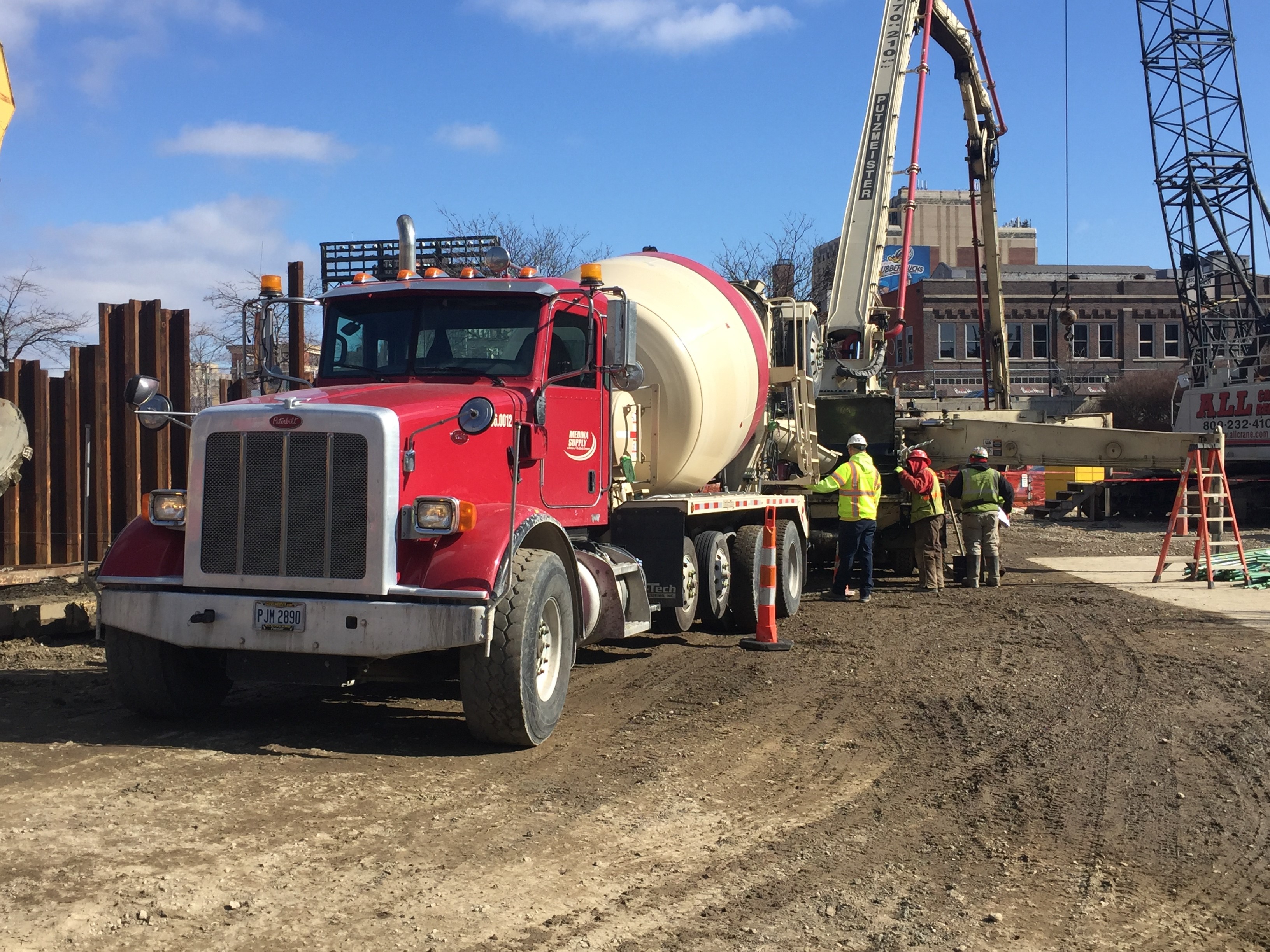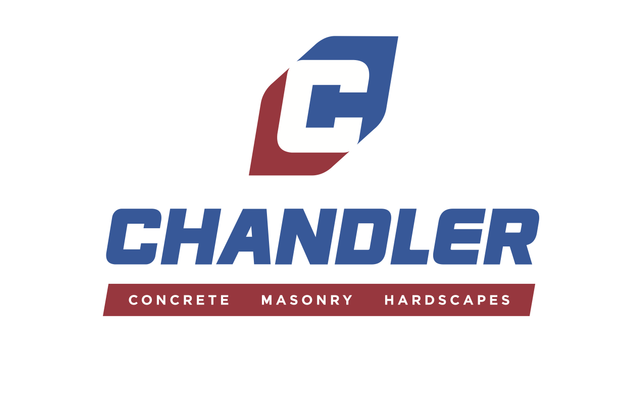The Benefits of Using Concrete Solutions for Sturdy Structures
Concrete solutions provide an array of benefits for constructing long lasting structures. This product is renowned for its remarkable strength and durability. Its resistance to ecological variables makes it a functional choice for various climates. Furthermore, concrete is typically a lot more cost-efficient in the long run. As engineers and building contractors significantly discover ingenious applications, the possibility of concrete in style comes to be also more interesting. The conversation of these advantages exposes compelling insights right into modern-day building and construction techniques.

Extraordinary Strength and Durability
Concrete is renowned for its outstanding stamina and toughness, making it a favored product in building and construction. Concrete Companies Near Me. Its capability to withstand and withstand heavy loads contortion under pressure is unparalleled, which is why it is usually used for fundamental aspects, supporting structures, and skyscrapers. The structure of concrete, that includes concrete, water, and aggregates, permits it to accomplish high compressive toughness, typically going beyond that of conventional building products like wood or steel. This toughness ensures architectural honesty and long life, therefore reducing maintenance expenses with time. In addition, concrete's sturdiness is obvious in its ability to endure different stresses without yielding to damage, making it ideal for varied applications, from bridges to domestic homes. On the whole, the robust characteristics of concrete add to its track record as a reputable choice for constructing long-lasting structures that stand the examination of time
Resistance to Environmental Aspects
Several building materials are at risk to environmental degeneration, concrete displays impressive resistance to various elements such as dampness, temperature level variations, and chemical exposure. Its fundamental residential properties make it specifically appropriate for diverse applications, from domestic buildings to big facilities tasks. Concrete's reduced leaks in the structure limits water absorption, lowering the threat of damages from freeze-thaw cycles and stopping mold development. Additionally, it maintains architectural honesty when exposed to severe temperature levels, making it optimal for regions with severe environments. Concrete additionally stands resistant against chemical assaults, including acids and sulfates, which can weaken various other materials. This resistance is even more improved by the use of specialized ingredients and therapies throughout the mixing process. Overall, concrete's toughness despite environmental difficulties assurances long life and reliability, making it a preferred choice for builders and designers intending to construct withstanding frameworks.
Cost-Effectiveness Over Time
Cost-effectiveness in concrete services materializes as a long-lasting financial investment that noticeably benefits structures. This technique not only minimizes upkeep costs yet also improves energy efficiency, leading to considerable savings over time. Comprehending these aspects is necessary for assessing the general worth of long lasting concrete building and constructions.
Long-Term Investment Conveniences
Purchasing sturdy frameworks returns significant long-lasting benefits that prolong past initial expenses. Concrete services, recognized for their toughness, add to a framework's durability, ultimately decreasing the total cost of ownership. By utilizing top notch materials and skilled craftsmanship, proprietors can expect fewer repair work and substitutes in time. This dependability converts into a stable property value, making concrete constructions a wise economic selection in the property market. Additionally, structures built with concrete are usually extra energy-efficient, more boosting their cost-effectiveness. Consequently, the initial investment in concrete services can bring about substantial financial savings and higher returns for many years, affirming the value of choosing resilient options for lasting construction tasks.
Lowered Upkeep Costs
The long life of concrete structures not only enhances asset worth however likewise significantly reduces upkeep expenditures gradually. Unlike products that break down rapidly, concrete demonstrates outstanding resilience versus numerous ecological aspects, such as wetness, temperature level changes, and pests. This fundamental resilience converts to fewer repair services and substitutes, therefore decreasing long-lasting expenses. Furthermore, the low absorption rate of concrete limitations problems associated to mold and mildew and mold, which can demand costly remediation initiatives. Normal maintenance is typically decreased to basic cleaning as opposed to comprehensive repairs, even more adding to cost-effectiveness. Consequently, home proprietors purchasing concrete services can expect a considerable decline in upkeep spending plans, making concrete a financially sound choice for sturdy structures.
Energy Performance Financial Savings
As power performance comes to be increasingly essential in building, concrete frameworks attract attention for their ability to boost lasting cost savings on utility bills. The thermal mass of concrete enables buildings to maintain stable indoor temperature levels, decreasing the requirement for heating and cooling systems. This building lowers power consumption and equates to decrease energy costs gradually. Additionally, concrete's sturdiness adds to fewer substitutes and repair work, likewise boosting cost-effectiveness. Furthermore, contemporary concrete modern technologies, such as shielded concrete types and energy-efficient mixes, boost insulation and power efficiency, bring about significant cost savings. Investing in concrete solutions not only benefits the atmosphere via decreased energy usage however also provides significant financial advantages for property owners in the lengthy run.
Adaptability in Design and Application
Concrete's convenience in layout and application enables a wide array of adjustable aesthetic options, making it suitable for numerous architectural designs (Concrete Pasadena TX). Its capability to adapt to diverse structural applications boosts its performance in both domestic and industrial projects. This flexibility settings concrete as a favored material in contemporary building
Customizable Aesthetic Alternatives

Varied Architectural Applications
Discovering the diverse structural applications of concrete exposes its exceptional convenience in design and performance. Concrete is used in various kinds, consisting of foundations, wall surfaces, sidewalks, and ornamental components, permitting it to adjust to countless architectural designs. Its inherent strength and sturdiness make it ideal for skyscrapers, bridges, and framework jobs. Furthermore, concrete can be molded right into complex shapes, accommodating cutting-edge styles while maintaining structural stability. This flexibility additionally extends to residential applications, such as patio areas, driveways, and keeping wall surfaces. Additionally, advancements in modern technology have caused the advancement of specialized concrete mixtures, improving efficiency in particular environments. This varied applicability underscores concrete's vital role in modern-day building and construction, fulfilling both practical and aesthetic needs efficiently.
Low Maintenance Demands
Lots of building proprietors value the low upkeep requirements related to concrete frameworks. Unlike materials such as timber or metal, concrete is naturally resistant to bugs, rot, and corrosion. This durability greatly reduces the frequency and expense of repairs over time. Splits and surface area wear can be quickly resolved with very little effort, typically calling for just routine sealing or resurfacing.Additionally, concrete structures do not require normal painting or discoloration, additional contributing to their low maintenance. This particular is particularly advantageous for industrial buildings, where maintenance expenses can promptly accumulate.Furthermore, concrete is much less prone to weather-related damage, making sure that frameworks remain intact no matter ecological problems. Because of this, homeowner can appreciate the lasting advantages of concrete, including minimized labor and upkeep expenses, allowing them to allocate resources to various other crucial areas of their homes. Inevitably, the reduced maintenance needs of concrete make it an attractive selection for developing long lasting frameworks.
Eco-Friendly Structure Product
As the need for lasting construction practices grows, concrete becomes an environmentally friendly structure material that uses numerous ecological advantages. Its production can incorporate recycled products, such as commercial by-products and waste aggregates, which lowers the requirement for virgin resources and reduces garbage dump waste. Additionally, concrete has the capability to manage temperature, thereby boosting energy efficiency in structures. This thermal mass result can bring about lower power usage for cooling and heating, more lowering a structure's carbon footprint.Moreover, concrete is long-lasting and sturdy, which indicates structures need fewer fixings and improvements gradually, leading to much less source use on the whole. Developments in modern technology have actually additionally resulted in the growth of environment-friendly and low-carbon concrete solutions that decrease greenhouse gas discharges throughout production. By prioritizing concrete in building and construction projects, home builders can add to a more sustainable future while making sure the longevity and strength of frameworks.
Boosted Property Worth and Allure
A well-constructed concrete framework notably enhances residential property worth and appeal, typically making it a lot more eye-catching to potential buyers or renters. Concrete's longevity and reduced upkeep requirements add greatly to long-term financial investment returns. Characteristics featuring premium concrete buildings have a tendency to draw in higher offers due to their regarded security and discover here durability. Additionally, cosmetically pleasing concrete layouts, such as stamped or colored finishes, can elevate visual appeal, producing a positive first impression.Moreover, concrete frameworks frequently satisfy modern building criteria, which can be a marketing factor for ecologically conscious customers. The power performance connected with well-insulated concrete also appeals to customers looking to lower utility costs. Generally, purchasing concrete services not just reinforces the structural stability of a property yet also boosts its bankability, resulting in boosted building worth and an one-upmanship in the realty market.
Often Asked Concerns
Exactly how Lengthy Does It Require To Cure Concrete Appropriately?
The healing procedure of concrete usually takes concerning 28 days to attain ideal strength, although first setup takes place within hours. Aspects like temperature level and humidity can influence the curing period and performance substantially.
What Sorts Of Concrete Provider Are Offered?
Numerous kinds of concrete services exist, including pouring, forming, finishing, resurfacing, and ornamental concrete. Concrete Pasadena TX. Companies might likewise supply repair work, remediation, and setup of concrete structures, catering to both property and industrial requirements
Can Concrete Be Recycled After Its Usage?
Concrete can undoubtedly be recycled after its usage. When refined, it can be repurposed for new building jobs, reducing waste and advertising sustainability within the building and construction sector while preserving architectural stability in new applications.
What Are the most effective Practices for Pouring Concrete?
When pouring concrete, ideal methods include proper site prep work, guaranteeing optimal temperature level problems, utilizing appropriate blending ratios, maintaining constant putting techniques, and enabling sufficient healing time to enhance stamina and toughness of the completed structure.
Exist Any Type Of Alternatives to Traditional Concrete?
